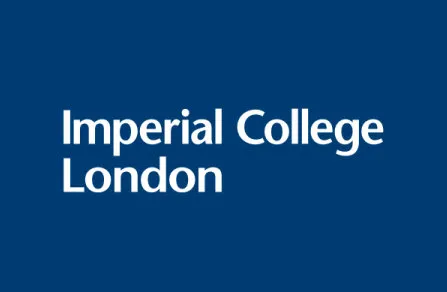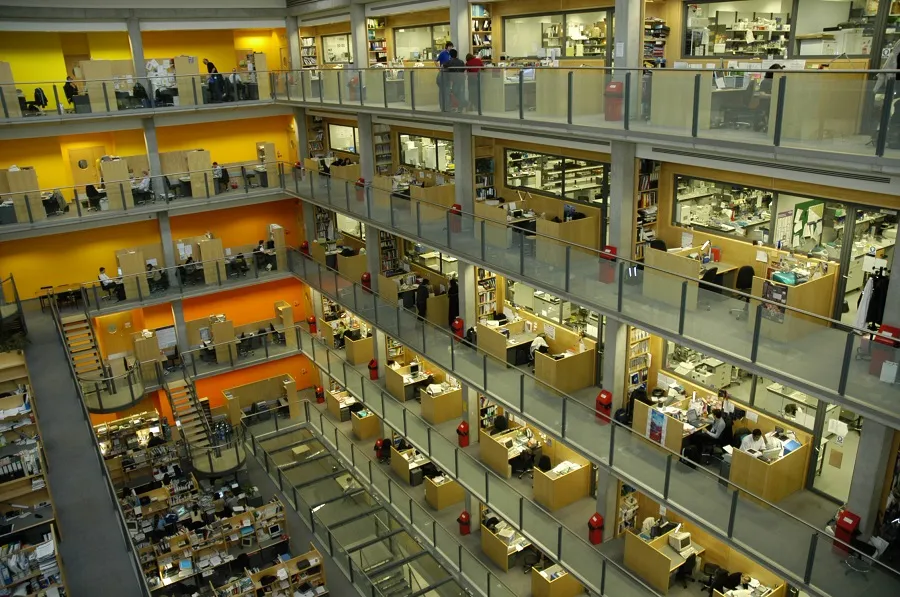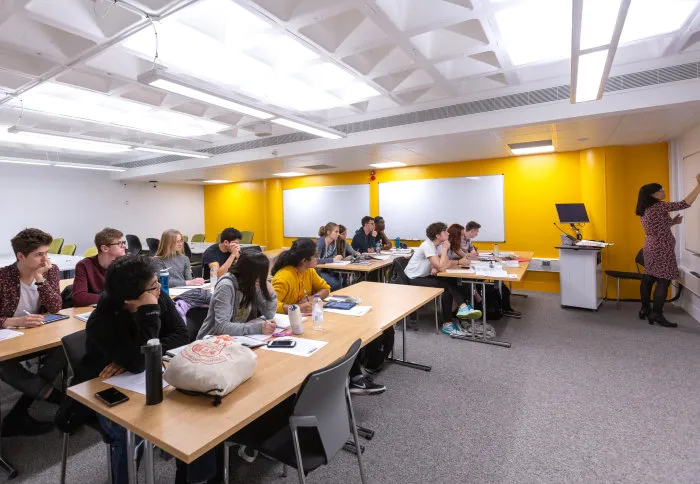About

University Type
Public

London,
United Kingdom

Year Established:
1907
Imperial College London (legally Imperial College of Science, Technology and Medicine) is a public research university in London. Imperial grew out of Prince Albert's vision for a cultural centre in South Kensington, including the Royal Albert Hall, Victoria and Albert Museum, Natural History Museum, and Royal Colleges. In 1907, Imperial College was established by Royal charter, unifying the Royal College of Science, Royal School of Mines, and City and Guilds of London Institute. In 1988, the Imperial College School of Medicine was formed by merging with St Mary's Hospital Medical School. In 2004, Queen Elizabeth II opened the Imperial College Business School.
Rankings

#2
QS

#11
USNews

#8
THE
Imperial College London Program Rankings
-
Advanced Chemical Engineering (Masters) - Rank #7 (QS)
-
Chemical (with Nuclear Engineering) (UG) - Rank #7 (QS)
-
Chemical Engineering (UG) - Rank #7 (QS)
-
Civil Engineering (UG) - Rank #7 (QS)
-
Electrical & Electronic En (UG) - Rank #10 (QS)
-
Electrical & Electronic Engineering (UG) - Rank #10 (QS)
-
Computing (UG) - Rank #15 (QS)
-
Computing (UG) - Rank #15 (QS)
-
Computing (Artificial Intelligence & Machine Learning) (UG) - Rank #15 (QS)
-
Computing (International Programme of Study) (UG) - Rank #15 (QS)
-
Computing (Management & Finance) (UG) - Rank #15 (QS)
-
Computing (Software Engineering) (UG) - Rank #15 (QS)
-
Computing (Visual Computing & Robotics) (UG) - Rank #15 (QS)
Imperial College London Highlights
FAQs
What are the most popular graduate programs offered at Imperial College London?
Imperial College London is renowned for its engineering, business, and natural sciences programs. Key popular graduate programs include the MSc in International Health Management, MSc in Finance, and the MSc in Artificial Intelligence. Additionally, the college is globally recognized for its advanced research and teaching in the fields of medicine and engineering.
What is the Annual Cost of attendance at Imperial College London?
For the academic year 2023-2024, the average tuition fees for international students at Imperial College London range from £34,500 to £45,000 annually. The estimated living cost is around £21,000 per year. Combining these, the total annual cost ranges from £55,500 to £66,000, approximately equal to 55,20,000 to 65,70,000 Indian Rupees (based on the current exchange rate of 1 GBP = 99.46 INR).
What Financial aid and scholarship options are available at Imperial College London?
Imperial College London offers a variety of scholarships and financial aid options to support students financially. Prospective students can apply for scholarships such as the President’s PhD Scholarships, Imperial Excellence Scholarships, and various international scholarships specific to countries and regions. Applications for scholarships usually require submission of academic transcripts, a personal statement, and sometimes a research proposal, alongside the standard application for admission.
What is the reputation and ranking of Imperial College London?
Imperial College London holds a prestigious position in global rankings, consistently ranking in the top 10 worldwide. Notably, it ranks 1st in the UK for engineering and technology, and 3rd globally for natural sciences according to the QS World University Rankings 2023. These rankings reflect its strong emphasis on science, technology, engineering, and medicine.
What is the campus culture like at Imperial College London?
The campus culture at Imperial College London is vibrant and diverse, with a wealth of activities, clubs, and societies that cater to a wide range of interests. Students can engage in over 370 clubs and societies including cultural festivals, sports teams, and academic groups. Major events like the Imperial Festival and the annual Fringe event showcase student innovation and creativity, fostering a dynamic community atmosphere.
What are the housing options at Imperial College London?
Imperial College London provides several on-campus accommodation options, primarily for first-year undergraduates and postgraduates. Off-campus, many students opt for areas like South Kensington, Earl’s Court, and Hammersmith which are popular due to their proximity to the campus and vibrant local communities. These areas offer a range of rental options that cater to varying budgets and preferences.

.webp)
.webp)
.webp)
.webp)
.webp)

.webp)

